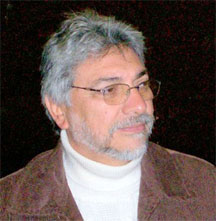Excuse my impertinence, but Brazil, Argentina, Colombia and several other Latin American countries deserve much of the blame for the recent forced exit of former Paraguayan President Fernando Lugo.
They have remained silent before on so many violations of democratic rights in Nicaragua, Bolivia, Venezuela and Cuba in recent years that they have helped create a climate of ‘anything goes’ in the region.
 Many Latin American countries’ selective defence of democracy — raising hell when right-of-centre leaders trample on democratic freedoms, but remaining silent when left-of-centre leaders do it — has resulted in a steady erosion of democratic values.
Many Latin American countries’ selective defence of democracy — raising hell when right-of-centre leaders trample on democratic freedoms, but remaining silent when left-of-centre leaders do it — has resulted in a steady erosion of democratic values.
Paraguay’s new government led by President Federico Franco, which was suspended from South America’s Mercosur trade bloc a week last Friday, says that the Paraguayan Congress acted strictly within the letter of the constitution when it ousted Lugo on June 22.
Indeed, article 225 of the constitution allows Paraguay’s Congress to impeach the president if he “poorly performs his functions” and, much as in parliamentary systems, two-thirds of both chambers vote to oust him. The vote for Lugo’s dismissal was 39 to 4 in the Senate, and 73 to 1 in the Chamber of Deputies.
But critics note — accurately — that the procedure didn’t follow due process because the president wasn’t given enough time to prepare his defence. While the constitution’s impeachment article doesn’t specify how much time the president should be given to prepare his defence, other articles say that every individual has a right to “indispensable time to prepare the defence.”
Lugo had requested 18 days, but was given only two hours.

The Paraguayan legislators who orchestrated Lugo’s forced departure must have felt that their lack of respect for due process was a minor peccadillo compared to the gross violations of democratic rights that are taking place in other countries, without any diplomatic consequences.
In Nicaragua’s 2011 election, there was no official Latin American complaint when President Daniel Ortega got himself reelected to a third term in office despite the European Union electoral observation mission’s conclusion that the election result was “murky” and that “the process was led by an electoral system that was not independent.’’
Most international observers agreed that Ortega’s reelection bid was prohibited under Article 147 of the Nicaraguan Constitution. It bars presidents from being reelected to a consecutive term, or to more than two terms. But Ortega got loyalist Sandinista judges to issue a Mickey Mouse ruling saying that the constitutional clause didn’t apply in his case.
Likewise, there was no formal Latin American outcry when Venezuelan President Hugo Chávez banned at least 272 leading opposition politicians, without due process, from running in the 2008 state gubernatorial elections.
Neither was there a regional outcry when Chávez silenced the independent RCTV television network, or when he violated the will of the Venezuelan voters who in 2008 elected opposition candidate Antonio Ledezma as mayor of Caracas. Shortly after Ledezma’s election victory, Chávez created a new Caracas government office that took most of Ledezma’s powers and virtually all of his office’s budget.
In Bolivia, over the past four years, President Evo Morales has jailed or sent into exile virtually all opposition state governors without due process. At least five opposition governors, including several opposition presidential candidates, have been arrested or forced to flee the country after dubious government-sponsored legal proceedings.
And Cuba’s military dictator Raúl Castro, far from being pressured to allow free elections, has been accepted with growing warmth by the same Latin American leaders who are now denouncing Lugo’s ouster as a “coup.”
At the recent Summit of the Americas between most Latin American leaders and President Barack Obama in Cartagena, Colombia, most countries in the region threatened not to attend future US-Latin America summits unless Cuba is invited.
Oddly enough, Cuba, which hasn’t allowed a free election in more than five decades, withdrew its ambassador from Paraguay last week, saying in a statement that the island “will not recognize any authority that does not emanate from the legitimate vote” of the Paraguayan people.
My opinion: The ouster of Lugo was wrong, and — although not as clearly unconstitutional as the 2009 coup in Honduras — deserves the region’s condemnation.
But the selective outrage of Brazil, Argentina, Colombia and other countries over violations of democratic principles in the region is inviting this kind of behaviour. It’s time for them to speak out against all violations of democratic principles, whether in Paraguay, Venezuela or Cuba.
© The Miami Herald, 2012. Distributed by Knight Ridder/Tribune Media Services.








